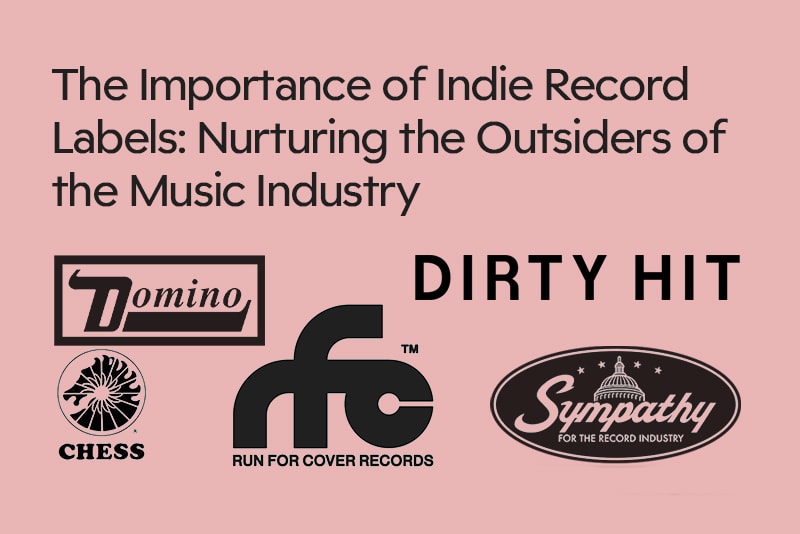The Importance of Indie Record Labels: Nurturing the Outsiders of the Music Industry

Alongside cancel culture comes an attitude for being best-dressed whilst creating the most sonic mess for your record label. Sometimes it’s pretty cool and works. Sometimes it’s embarrassing and you’re the family’s disappointment.
Acts of rage caused the rebellion against three big record labels in the 50s, who would typically refuse to share the spotlight with fundamental POC artists that still influence music to this day. Thus the birth of indie record labels such as Chess Records, home of the famous Chess Studios, which would later move on to be signed with Universal. But these days… it’s pretty rare to find a successful record label that isn’t already parented by one of the majors.
70 years later and independent record label shares are peaking at a 40.5% all-time high with bands like Wet Leg from Domino Recording Company, reaching a pretty fast and solid no.1 in the UK with ‘Chaise Longue’, and Beabadoobee conquering TikTok (and this weird/cool hybrid Y2K-grunge scene that we’re in) with help from Jamie Oborne’s indie label, Dirty Hit.
Today, we have hundreds of record labels trying to do relatively similar things whether that’s to make a difference in the scene, to make room in music for something that’s lacking, or to rack in some money where it’s long overdue.
Massachusetts-based label, Run For Cover, started from a $1,000 loan from 17-year-old Jeff Casazza in 2004 and is homing in on staple bands such as Turnover and Citizen. ‘Mainly’ (whatever that means?) independent 1988 record label, Sympathy for the Record Industry, was at some point inhabiting mainstream successes such as The White Stripes and Hole. Sufjan Stevens and his step-father started Asthmatic Kitty, founded in 1999 – name appropriately based on Stevens’ asthmatic family cat – actively representing the French-cinematic dream world of Angelo De Augustine.
All bands mentioned, although great for their scenes, just didn’t appeal to other mainstream competitors at the time, so getting signed to a major label was a major no.
Yet they’ve all been bands that have helped individuals discover some sort of semi-niche community engraved into the fundamentals of their identity development – to an extent. These labels have given chances to the outsiders of the talented, the artists who wanted to cut ties with expectations forced upon them as an artist, musician or both. These are labels that have contributed mass towards sub-cultures and genres.
Based on this fact alone, it’s completely necessary that indie labels rotate and emerge every few years. Without this practice, we wouldn’t have some of our favourite artists today.
What originally became a way for minorities to showcase their talent, later became a way for audiences to precisely pick and choose what they wanted to entertain their ear-holes with at easier accessibility; because providing labels has the budget and the guarantee of signing somebody that’s not going to be a massive flop, the act is always going to appeal to somebody, right? Which, if you’re lucky, doesn’t take long to turn into a community of people who are begging for merch, interviews and tour dates.
Indie labels can sus out what will bring success to the artist and the label by rummaging through the pile of diamonds in the rough that major labels had long forgotten about, whilst most of the time, being a lot more attentive to your needs, creative vision and direction. Which, personally, I believe is much better than anything Sony can bring you.
Unless you just wanna be mega-rich and famous lol.









